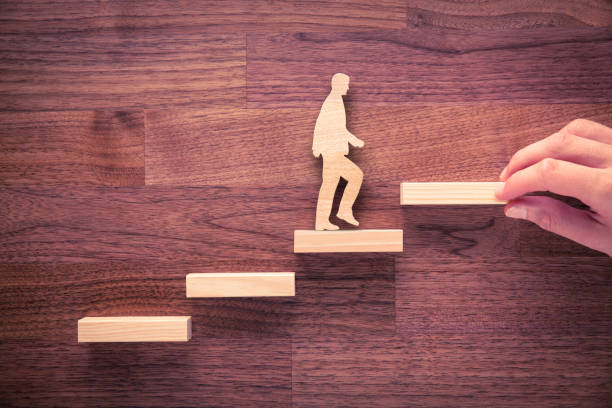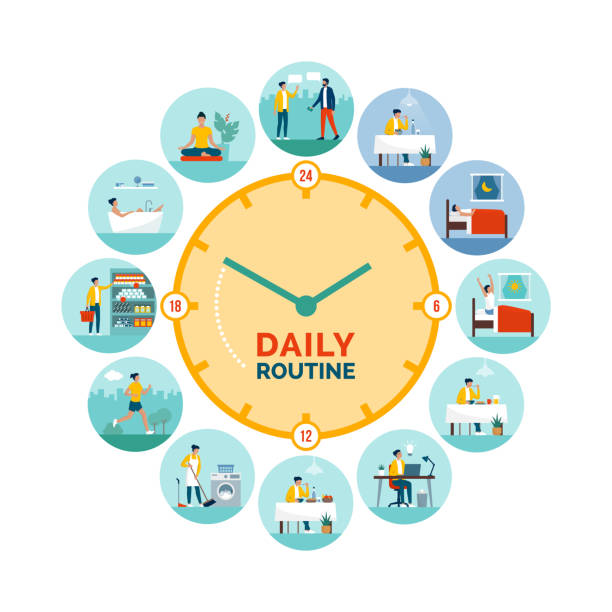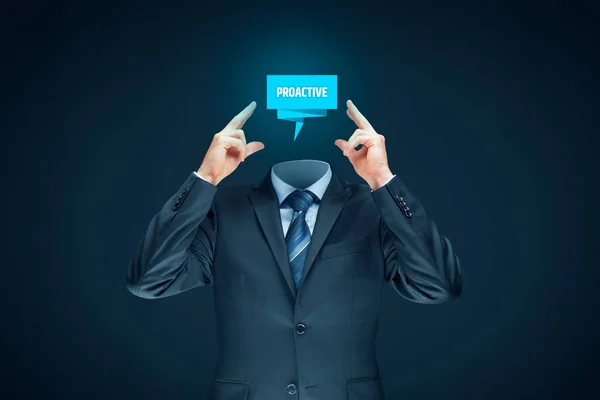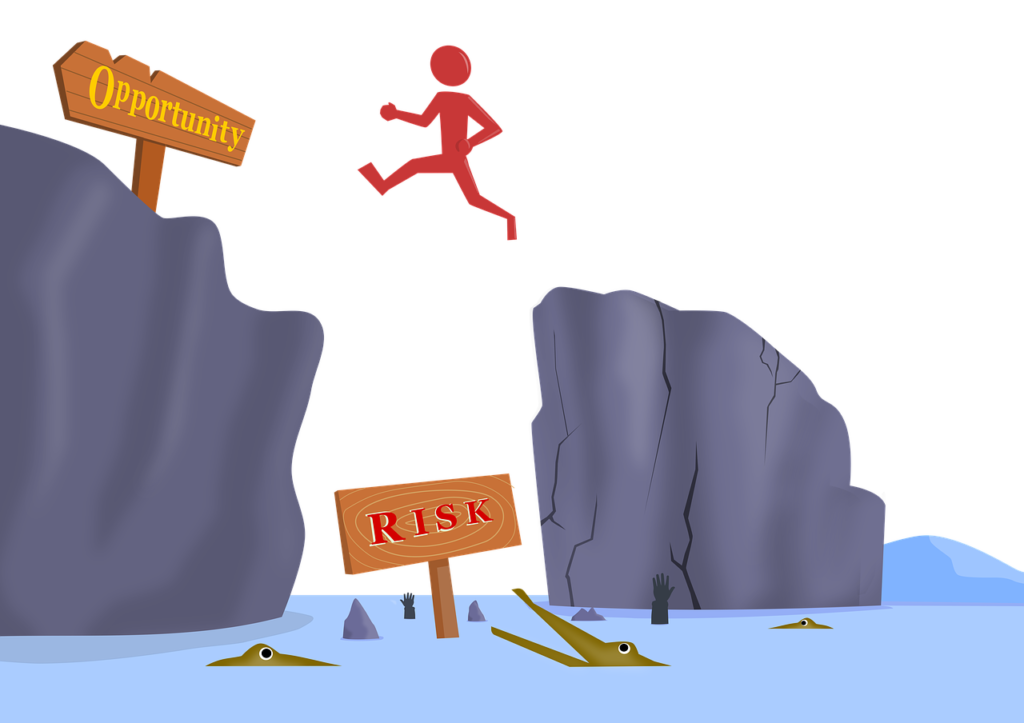
Table of Contents
Habits are something we all experience in many different forms. They can range from something as random and insignificant as constantly messing with your hair (personally guilty of that one), to something as severe as smoking or vaping. Habits are just a part of life and can be extremely detrimental to our well-being. That being said, the opposite is also true as there are countless positive habits that’ll lead to a healthier, happier and more successful life. Here, I will share 7 of these habits that I believe are crucial to achieving success in self improvement and building a better life; the last one is especially important. So without further ado, let’s just get right into it.
1. Build a Strong Daily Routine

As the saying goes, a healthy mission starts with a healthy lifestyle, and one of the most important aspects of a healthy lifestyle is your day-to-day routine. A well-built, flexible, and productive daily routine can be a catalyst for success. Though like always, there are two sides to every coin as the opposite is very much true. Don’t underestimate how detrimental a poor daily routine can be to you as it can be the catalyst for many other bad habits.
I’m sure you’re wondering “How exactly do I build a strong daily routine?” Luckily for you though, I’ve got you covered. Building a strong routine can be pretty tough at times so I’ll split it into 3 sections to help you lay the groundwork for your ultimate daily routine.
Section 1: The Morning

Believe it or not, the time you get up can have an extremely notable impact on your mood, energy levels, and overall productivity of your day. That goes double for those who don’t even see the morning by the time they wake up. Speaking of that actually, you may not like hearing this but that has to go. There’s a reason that whenever you wake up way too late you feel tired and de-energized. There’s a reason you regret it so much as you know you should’ve gotten up earlier. A key aspect of a healthy routine is being an early bird, here’s why:
- Early birds tend to be more productive. For many, morning hours are when they feel the most energized and that can be translated into being productive. There’s also the fact that it gives you more time to be productive.
- Early birds are more optimistic. Early birds see more light when they get up and this has a positive effect on their brain which makes them more optimistic people compared to those who don’t see as much light.
- They are better suited to life’s challenges. If you’re constantly getting up late during the weekends or your days off and then you have to get up early on the weekdays to go to school/work, how do you think that’ll make you feel? If you answered tired, that would be correct. The inconsistency of your sleep leads to your body feeling tired. Early birds don’t have this issue as they consistently get up early every day.
- They get more time to spend meaningfully. Night owls are awake for the same amount of time as other people. However, how that time can be spent is very different. Everyone is asleep at night and everything is shut which leaves nothing to do aside from bad habits and time wasting. Compare that to early birds who have way more time to do meaningful things, like spend time with loved ones and be more productive.
Now that we have established some of the benefits of being an early bird, what else should your ideal routine include? Well I know many of you are guilty of breaking this next key rule for a healthy morning routine and that rule is…

NO PHONE IN BED
You know what I’m talking about. Waking up, grabbing your phone and spending a whole hour just mindlessly scrolling. Not only is it a huge waste of time but it also releases high amounts certain hormone that can be extremely addicting which is known as:
Dopamine
Dopamine doubles as a monoamine neurotransmitter and a hormone. As a neurotransmitter, dopamine is involved in all sorts of bodily functions such as movement, attention, sleep, arousal, mood and behaviour to name a few. As a hormone, dopamine is known as the ‘feel good’ hormone and gives us a sense of pleasure. It’s kind of like a reward system that rewards us for doing the things we need to do in order to survive like eating, drinking and getting laid. So basically, whenever you do something pleasurable, your brain releases a high amount of dopamine. This results in you feeling good so you seek more of that feeling.
A lot of activities trigger that system and is the reason why we love junk food so much as junk foods trigger that release of dopmaine in our brains and make us want to eat more of it. The same thing goes for Social Media too, that release of dopamine makes us feel good while watching social media videos.
So why is it bad you ask? Well when we watch social media, especially short videos, we are overstimulating our brain. This means that our brain is taking on a lot more stimuli than it’s naturally designed to cope with and for each video we watch, a lot of dopamine is released. Over time this causes your whole dopamine system to become numb. This is why whenever we’re off social media, we feel flat and empty so we go back on our phone whenever we get the chance to so we can feel good again. This is also why many people struggle to watch longer videos on social media as their brain doesn’t find those videos stimulating enough.
Our numb dopamine system also translates over to other aspects of our lives. The dopamine system in our brains is also known as the reward and motivation system and since it’s now numb, we lose the motivation to do many things we should be doing like studying, working out and working hard.
Here’s a table that shows the effects different levels of dopamine have on us:
| Low Dopamine Levels | Regular Dopamine Levels | High Dopamine Levels | Dopamine Addiction |
| Tired Unmotivated Unhappy Mood swings Concentration issues | Happy Focused Motivated Mindful | Energized Euphoric Poor impulsive control Trouble sleeping More aggressive | Numbness Unmotivated Poor Implusive control Trouble sleeping More aggressive Poor attention span |
Notice how high dopmaine levels and dopmaine addiction share a few effects: Poor impulsive control, trouble sleeping and high aggression. These are the side effects having high dopamine levels and since dopamine addiction is essentially being addicted to those feelings it makes sense why they carry over. However the euphoric and energized effects don’t carry over as you’re more used to those feelings so the imact lessens to make you go numb, why is why attention span goes down the drain as you need te next spike in dopamine more and more just to feel the spike again.
In short terms, no more morning scrolling (and reduce your overall social media time while you’re at it, you’ll thank me for it).
What else?
So you’re up early and out of bed, what now? Well a cold shower is always the perfect start to a productive day. I know many people don’t actually understand the benefits of a cold shower so I’ll quickly list some:
- Boosted Immunity to common colds. This happens because the shock of the cold water can stimulate blood cells to fight off infection
- Improved mood and mental health. Many studies have shown a correlation between cold showers and decreased symptoms of depression as well as an overall better mood
- Improved circulation. Cold water strains your body which makes it work hard to maintain it’s core temperature which increases your circulation as a result
Another thing you should also take note of is what you eat for breakfast. For many of you that would probably cereal. Well guess what? I’m here to crush your hopes and dreams by telling you that you definitely shouldn’t eat cereal. Cereal is highly processed and more often than not come with refined carbs and a load of added sugar. There are obviously healthy cereals but they are few in number. To find them, look for low sugar and high fibre. I found this list here to help you replace cereal in your diet.
Section 2: The Daytime

So now you’re up, energized and ready to go to work, school or maybe it’s your day off. Even if it is your day off that’s still no excuse to slack off as there are many productive things you can still do. Whatever you have ahead though, in this section I’m gonna introduce to you a philosphy that I once learned (can’t remember where from sadly) and it helped me get the most out of my days and be more productive overall.
This unnamed philosophy (it probably has a name, I just don’t know it) is actually pretty simple. Every night, I want you to list every single task you want to do the following day in order of importance. Then after your highly efficient morning routine (you can thank me now I’m waiting), you simply carry out every task on the list one at a time. Sounds pretty easy right? Well yeah, it does, but just remember that strong focus and discipline (see section 7) are important to succeed with this daily structure.
It is extremely important that you DON’T multitask when applying this to your daily routine. As the saying goes “To do two things at once is to do neither,” and a true saying it is. Lemme ask you a question, would you rather do 2 tasks separately and do them really well or do 2 tasks at the same time but you do a crap job? Answer should be obvious so no further explanation is required.
Section 3: The Night time

The night time is a part of your day you definitely shouldn’t write off as many of the choices you make during this period can affect you the following day. To help you have a peaceful and relaxed night I’ll be splitting this section up into 2 sub-sections: before going to bed and (you guessed it) going to bed.
Before Going to Bed
There are 2 golden rules I follow before going to bed, and those are:
Rule 1: No eating for at least 2-3 hours before bed
I actually learnt this one from a good friend of mine who is a brilliant scientist. But basically, eating food before you go to bed can lead to many digestion problems and even obesity if you eat too much too regularly at night. It will also disrupt your sleep as you could wake up with indigestion and is overall just not a healthy idea.
Rule 2: No screens or stimulating activities at least 30 minutes before bed
The same dopamine principles from earlier also apply here for mostly the same reasons. But this time, it comes with the added effect that overstimulation can make it tougher for you to sleep and make your sleep way worse overall. Not only will it take longer for you to get to sleep but you’re also more likely to wake up partway through the night which isn’t ideal. A good substitute for screens would be reading a book (see section 3) instead.
There are other little things but I’ve noticed that those little things tend to fall under those 2 rules anyways or you just shouldn’t be doing them altogether (i.e. drinking, smoking).
Going to Bed
Now that your mind is relaxed and free of stimulation, it’s time to go to sleep. Getting a good amount of sleep is vital for having a productive day as if you’re tired you’re more prone to getting distracted and submitting to impulsive thoughts.
I personally reccommend you get at least 8 hours of sleep.
What time should you actually go to sleep though? Well before that I want to introduce you to something
Circadian Rhythms
Circadian Rhythiams are part of the body’s internal clock. They are 24 hour cycles that carry out many of our essential functions as human beings. These cycles include the body temperature cycle and the sleep-wake cycle.
As you probably guessed, I’ll be focussing on the sleep-wake cycle. This cycle is what helps us sleep at night and stay awake during the day. During the daytime, light exposure sends signals to our body’s internal clock and these signals generate altertness and keep us awake. The opposite happens during the night. When night starts to fall, ther interal clock signals the body to start producing melatonin, a hormone that helps us sleep. Signals are then sent to keep us asleep through the night.
It is extremely important to regulate the sleep-wake cycle as it’s what keeps us altert throughout the day. If the cycle isn’t regulated then this can lead to decreased concentration throughout the day as well as poor sleep quality. Later down the line it could even lead to chornic diseases such as obesity, sleep disorders and even diabetes.
How do you regulate it though? Simple. You just go to bed at roughly the same time every day. It should also be a good time so you can balance your body’s exposure to light and dark
I personally reccommend you go to bed around 10-11PM every night with midnight being the absolute latest.
2. Practice Mindfulness

Mindfulness, in its simplest terms, is the ability to be fully present. To be mindful is to be fully in the moment without being tormented by thoughts of the past or the future. Mindfulness is a form of meditation and I highly recommend you check out meditation as a whole. However, in this post, I’m going to focus on mindfulness due to the benefits that come with it. Speaking of which, what exactly are those benefits?
Benefits of Mindfullness
- Increased attention span. When you practice mindfulness, you’ll notice that your mind tends to wonder and daydream way less which allows you to focus more on what you’re doing and pay more attention to the task at hand.
- Improved mental health. Due to focusing more on the present with mindfulness, your mind won’t remember the regrets of the past or the uncertainties of the future which will be a benefit to you as you’ll be able to enjoy the present more spending time hung up on things.
- Better sleep. This happens because of the relaxation that mindfulness offers. It also gives us better sleep because we can focus more on the present which allows for less interuptive sleep.
- Improved physical health. Studies have shown that mindfulness has helped many attain lower blood pressure, reduce chronic pains and even treat heart disease.
- Can help you move on from pain. A common misconception is that mindfulness makes you forget your pain so you can live in the present. That simply isn’t true. Mindfulness actually helps you accept your pain so you can finally move on from it.
How to Practice Mindfulness
Like many forms of meditation, there’s no set way to go about practicing mindfulness and there are many common techniques that are used to effectively practice mindfulness. Here are a few:
- Body scan. The body scan technique involves moving your attention through each part of your body from head to toe and focusing on what each part of your body feels. You can focus on a variety of feelings to achieve the ultimate goal of relaxation.
- Mindful movement. This technique is all about noticing the different feelings that your body feels. It could be the feeling of the ground beneath your feet as you walk, the afternoon breeze against your body, or the intensity you feel during a workout. Focusing in on these sensations will sharpen your mind and allow you to be more mindful.
- Mindful eating. To achieve mindful eating, you should pay attention to the taste and textures of the food you’re eating. Not only will this help your mind focus on the present but you will also enjoy the food even more.
- Mindful meditation. Another alternative is to simply just sit down and focus on your breathing. Try to keep the breathing well paced and focused and if any thoughts wonder into your mind, simply acknowledge them wihout letting them grow befre moving back to the present.
These are just a few of the many ways that you can incorporate mindfulness int your daily life.
As you practice mindfulness you’ll notice how much more alert and attentive you are. You’ll start to appreciate the world around you much more instead of constantly wishing you were back in the ‘good old days’. If you want to know how mindful you really are ask yourself this question:
Whenever someone is talking to you, are you really listening to them? Or are you just waiting for your turn to speak?
That leads into one of the most valuable things mindfulness has taught me, to pay proper attention whenever someone is talking to you. Not only will this help you focus more on the present, but it will also allow you to develop more meaningful relationships with people, which is a core aspect of self improvement.
Mindfulness may start with just focusing on the present, but it can lead to so much more and can ultimately bring you a brighter future.
3. Read Every Day

I feel like we have all gone through that ‘reading is lame’ phase at least once in our lives. This phase has led to many people undervaluing the power of reading and neglecting it in preference of much more stimulating activities like Netflix or YouTube. In the modern age of technology and innovation, many people just don’t see the appeal of words on a page. It’s a shame, as reading books offers benefits that modern alternatives can’t replicate.
Benefits of Reading
- Increased knowledge. When you’re reading, your brain is absorbing a lot of information and new words that overall increase your general knowledge. This especially applies to non-fiction.
- Improved sleep. Since reading is less stimulating, it can help your mind wind down for the night and allow you to fall asleep faster and rest for longer.
- Reading is good for your brain. When reading, you’re required to remember hundreds of pages worth of information which will train your brain’s memory function which will greatly help you in both the short run and the long run.
- Improved focus. While reading, you have to solely concentrate on the book to not miss anything and this will improve your concentration and focus a lot.
- Reduced stress. Reading is an extremely relaxing activity as it removes you from the outer world for a short time and allows you to just focus on the book which will reduce stress a great deal.
- Reading motivates. This applies to all form of stories, as seeing your favorite characters overcome hardships will motivate you to overcome yours. There is also an entire sub-genre of non-fiction books dedicatd to motivation and knowledge.
What Should You Read?
There are many different sub-genres of reading and these can be boiled down into 2 categories: fiction and non-fiction (stating the obvious, I know). Both categories can be extremely beneficial to your self improvement. However, the opposite can be said as I doubt an atlas would be much help for self improvement (no atlas hate intended). That being said, let’s check out both categories to see how they can benefit you.
Non-Fiction
Non-fiction is practically a gold mine of information and reading non-fiction is a great way to gain insight and knowledge. It’s a great way of sharpening your mind. Reading non-fiction will also help you develop analytical thinking to help you overcome many of life’s problems. You can learn many valuable life lessons from reading non-fiction and most people agree that non-fiction can benefit your self improvement a lot. If you’re looking to check out non-fiction, here are a few top-quality non-fiction books that will help your self improvement lifestyle a lot (no atlases included sadly):
- 12 Rules For Life – Jordan B. Peterson. Say what you want about Jordan Peterson, but this book is simply incredible. While in concpet it may seem simple, this book is anything but simple. The book gives you 12 rules to follow for the rest of your life and it explains the psychology behind each rule and it’s truly fascinating how much you learn from each rule.
- The 7 Habits of Highly Effective People – Stephen R. Covey. This book was a huge inspiration for this post. Obviously, I didn’t use the same habits in this post (except one) but you get the idea. Nonetheless, the habits that are taught in this book are still extremely useful and will sharpen your mind into a tool for success.
- How To Win Friends and Influence People – Dale Carnegie. This book will teach you to do exactly what it says it will. It’s one of the best-selling books of all time for a reason as the lessons it teaches are beyond valuable. It teaches you how to build more meaningful relationships with others as well as how to help people better and so much more. Couldn’t recommend it enough if you haven’t already read it.
These are just a few of the many incredible self improvement books that can help propel you on the path to success and I encourage you to try and read as many self help books as you can.
Fiction
Believe it or not, fictional books can also be extremely towards your self improvement. However for different reasons entirely. To me, the main benefit of reading fiction is that it makes you a more creative person. When reading crazy stories with incredibe attention to detail and characterization, you are forced to picture what it would be like in your head which sharpens your mind and makes you a more imaginative person. Speaking of those crazy stories, here are some you can check out:
- Forgot to write this (man I’m so clever), will get round to it soon (probably will forget again).
How To Get The Most Out Of Reading
A common approach to many things in life is doing the bare minimum. People know that it will get them nowhere, but many still do it. This also applies to reading. Don’t just assume that because you have a book it has helped you, ensure it helps you by getting the most out of the book. Here’s a few tips on how to get the most out of your books:
- Take notes. This one only applies to non-fiction, a catergory all about learning. Chances are that if you don’t write down or document what you are learning you’ll forget it soon after you do. They don’t have to be long notes, just a brief reminder can really go a long way
- Never skip a day of reading. The path to success is all about consistency and momentum as you have to keep on going no matter how hard things get. Keeping your reading consistent will really help accelerate your personal growth and, come on, you know it’s the right thing to do.
- Read important parts multiple times. If you’re especially motivated, you can even read whole books multiple times but I won’t strongly advise you to do that. What I will strongly advise you do is to read especially important parts multiple times just to make sure you understand the book. There’s no point rushing through a book if you aren’t gonna gain anything from it.
- Cut out distractions. Focus is the name of the game when reading as if you aren’t focused while reading then you’re not going to learn much. Even a split second of distraction could break your concentration completely. I suggest using mindfulness to help boost focus when reading and make sure your phone isn’t going to distract you the second you get a notification.
Overall, reading is an immensely valuable and underlooked hobby that can enhance your mind both intellectually and creatively. It’s one of those things that deep down we know we should be doing but always say that we’ll do it tomorrow which leads nicely into the next habit.
4. Be Proactive

Before we dive on in, I’m gonna tell you a story.
So I used to know a guy, let’s call him Mark. Mark was in quite the toxic relationship and he couldn’t get out of it. It was what you would describe as a “love-hate” relationship, where his lover was very clearly damaging him both physically and mentally. However, Mark couldn’t bring himself to leave his lover because, despite all the damage, his lover made him feel good. Deep down though, Mark knew he should leave her and he always said he would “leave her tomorrow,” even though tomorrow always came and they still hadn’t separated.
So who was Mark’s lover you ask? If you guessed Amber Heard, you are sadly wrong but that’s not a bad guess. Instead of a woman, Mark was in a (literally) toxic relationship with tobacco. He smoked God knows how many cigars a day and always said that he would quit tomorrow but tomorrow never came.
Mark is dead now.
In his last year or so of life, Mark continued to smoke despite struggling to even breathe and he eventually succumbed to his habit. The ironic part is that he talked so much about quitting but he never did quit. This happened because Mark wasn’t proactive. And I think we can all learn from Mark as to why we should be proactive.
What is Proactivity?
At its core, being proactive means controlling a situation before it happens rather than reacting to it after it happens. Being proactive is a key step to becoming successful and it can gain an edge in life instead of reacting to the consequences of others gaining that edge before you.
Being Reactive vs Being Proactive

So far I’ve talked a lot about proactivity and reactivity but I haven’t really gone into a deep dive about exactly what it means to be reactive or proactive, so let’s do that now
Reactivity
Being reactive is the polar opposite of being proactive and is essentially your reaction to not being proactive as it will always follow failure to do so. This can often come in the form of regret, guilt, or shame. In Mark’s case, it was the regret he felt after the effects of a cigar wore off, which often led him to smoke another. Being reactive is essentially the consequence of being a slave to impulsive thoughts and bad habits. In order to change, you’ll first need to identify your reactive thoughts and change them, here are some things to look out for:
- Guilt after doing bad habits. This is the most obvious one. Usually after drinking, smoking, vaping, or using other substances, you’ll probably feel a mixture of tiredness, unhappiness, emptiness, and guilt. This sensation will often lead many to take another shot or puff of their drink/vape (or any other bad habit they may have) just to feel at ease again. This feeling is only temporary though and keeps many trapped in a loop they believe they can’t escape (keyword: believe).
- Post-nut clarity. This is basically the same as above, however I separated it due to its infamous status. The same principles from before apply here, just quit doing it man.
- Guilt from procrastination. This is the opposite of before. Instead of feeling guilty over something you shouldn’t have done, this is all about feeling guilty you should’ve done. The best examples here would be not doing your homework and not going to the gym. Basically, it’s the kind of activity you know that you shuld be doing deep down but you don’t do it out of laziness.
- Getting hung up over the past. If you constantly wish you did things differently, you might be a reactive person and something has to change. The best example of this would be missing your ex. No matter how hard you wish you did things differenly, it won’t change the fact that they’re gone and even if you do get them back, it won’t feel the same.
If you’ve noticed, there’s a strong connection between all of these points that links them together. All of these points are rooted in laziness, which is the number 1 cause of being reactive. Laziness is your greatest enemy on the path to success.
Proactivity
Proactivity is all about taking action and anticipation. While reactivity/laziness is your greatest enemy preventing you from success, proactivity is one of your greatest weapons that will drive you toward it. If Mark was proactive, he would’ve dropped his cigar and squashed it (or maybe he would’ve just thrown it away). If you want to be proactive then here’s how to respond to bad habits:
- Hurl your vapes out the window. Okay maybe not in the literal sense since it’ll damage the environment (I just really hate those things), but you get the idea. If you have a bad habit like vaping, smoking, drinking or whatever, just stop doing it. It’s really that simple, all you have to do is stop. I don’t want to hear any excuses about it “being too hard,” as that excuse is kinda pathetic honestly. When you pull the “it’s too hard” card, you’re essentially saying that you’re such a weak person that you can’t quit. Something being hard doesn’t give you the excuse to take the easy, self-destructive road.
- Stop beating it/ sleeping around. No words needed for the first one, just stop it yu know you should. As for the second one, the same thing applies. Sleeping around and one night stands often end in regret in the form of post-nut clarity from both parties. The man often feelings shameful and ends up ghosting his date the next morning which leads the woman to feel used. However people still do it to get a sense of instant gratification. I recommend avoiding that kind of life before it consusmes you.
- Take action. Next time you think of something you need to do and tell yourself “I’ll do it tomorrow,” I want you to change that thought to “I’ll do it now.” This will encourage you to take action and plus, you’ll feel pretty good about yourself after you do it. So make sure to go to the gym even if you’re tired (don’t go if you’re ill though that’s just plain dumb), make sure to do your homework on time and make sure to not be lazy.
- Accept the past. The past can never change, that’s why it’s pointless to wish things happened differently. Instead, you should accept the past for what it is and always try to learn from it to better live in the present and anticipate the future. It’ll also help you out greatly with mindfulness and help you be more fulfilled in life.
The definition of success is the same as the result of proactivity: hard work. That’s what it all leads back to. Hard work involves taking risks and stepping out of your comfort zone and doing all this leads back to proactivity. It defines success and will lead to a more productive and happier life if used well.
5. Build a Strong Network and Make Deeper Connections

No, I’m not asking you to go out and build your own router (although props to you if you actually pull that off). This isn’t that type of networking. I’m on about the other type, the one you’ve probably been hearing all about, and for good reason. Or maybe you have no idea what I’m on about. Either way, that just leaves one question:
What is Networking?
Before I tell you what exactly networking is, I want to show you a quote by Jim Rohn you may or may not have seen before, it’ll be important later.
“You are the average of the 5 people you spend the most time with.”
This quote can be all too true as hanging around shady people will often lead to you becoming shady as well. This is where social networking comes into play, the kind of networking I was on about earlier.
At its core, social networking (I’ll just be calling it networking from now on) is the act of building positive relationships with professionals in your industry. These relationships should be beneficial to both parties and the main objective of networking is business growth. That being said, it doesn’t mean that you shouldn’t just use the other person as a tool for growth as that overlooks a fundamental aspect of networking. Building meaningful connections with people is extremely important in networking as deeper personal relationships can often enhance professional relationships.
Back to the quote from earlier though. As I already established, hanging around with the wrong people can lead you down the wrong path in life. However the opposite is true, as hanging around the right people will help you on the path to success; this is why networking is so powerful. How do you get started though?
How to Start Networking
For many things in life, getting started is often the hardest part. It’s those first few days at a new school, the first few visits to the gym and the first few weeks without vaping that can often be the hardest. The same applies to networking as many may not know where to start or may be afraid of rejection. Regardless, you have to take the leap of faith (any Spider-Man fans here?) and never give up. Here are a few things you can do to get started with networking:
- Go in with the mindset of making friends. First things first, you’ll need to get the mindset right as that is the most important part. Think about this. Would you be willing to work with someone who saw you as nothing more than a networking connection? Hell no. That’s about as shallow of a connection as you can get and goes against what networking should be. You should always put providing value before the monetary aspects of networking and always approach people with the mindset of making friends as you’ll be seen as more genuine.
- Always seek to help them first. If you approach someone with the mindset of them having to help you, then you’re screwed. You should always be willing to help them first without expecting anything in return, otherwise you’ll just come off as needy. Doing this will show that you’re a kind and up-front person who is willing to help and they’ll appreciate it more as well.
- Start with people you know. There’s no better place to start. Don’t be afraid to ask any family members for help building connections as you never know who they might know. Since they trust yiu more they’ll naturally be willing to help.
- Attend networking events. Countless networking events are being held all the time and they are a great way to build connections with people. I suggest you already have a business or some sort of value to offer before you attend, as otherwise, you won’t offer much value. Just remember to go in with the right mindset.
- Cold Emails/DMs. Another way to build connections is to find businesses or people to who you can offer value and simply shoot them a DM or email offering them that value. It’s a common tactic used by agencies and it does work, however, you might have to send a LOT of messages before getting a response.
Networking Tips
Now that we have established how exactly to start, here’s some important things you should remember while networking:
- Be honest. This is by far the most important tip and it doesn’t just apply to networking. You should always be honest in everything you do as many people genuinely appreciate it. Plus, people in the networking market can smell bluff from a mile away and it always is a benefit to be honest.
- Listen attentively to others. One of the most common things many people do is not pay attention to others when they’re talking. Not only is this extremely disrespectful to the person but you’re also missing out on opportunities to build deeper connections with others or learn from them. Don’t listen to reply, listen to learn.
- Put in the effort. Any kind of relationship will crumble without effort being put in by both parties. You would think this is obvious, however you would be surprised how many people overlook this. If you truly value your connection with someone, make sure to go out of your way to deepen that connection, this will make them appreciate you more and do the same for you.
- Ask for advice, not for work. Asking a connection for work can often be extremely awkward, especially at first when you don’t know them so well. Instead, ask them for advice. Not only is this way less awkward but you also come off as someone willing to listen and improve which will make you a more trustworthy person.
- Do your research. It’s always handy to know exactly who you’re dealing with, so that way you can cater better to the type of person that they are. General research also helps as many people in the networking business look for certain qualities in people.
- Be funny. This one seems pretty random but can be really useful in getting people to like you, especially at events. Having the ability to make people laugh is extremely useful as if you make them laugh, they’ll be more likely to listen to whatever else you have to say. It’ll also make you more likeable. Just remember to choose the appropriate situations as no one wants someone who is totally unserious and unprofessional.
- Trial and error. Like it or not, not everyone is going to want to network with you and that’s ok. Just make sure that every time you fail, you learn something from it. That way you can approach the next person with new lessons learned.
Overall, networking is an essential part of the road to success and if done right, can really help you out professionally and personally. Just make sure to always provide genuine value to people and look to build strong and meaningful connections with people instead of just seeing them as a networking partner.
6. Take Risks and Step Outside Your Comfort Zone

I’ve honestly been feeling the quotes recently so let’s start this section with one as well:
“Doubt kills more dreams than failure ever will”
Your mind is your most powerful tool, but it is also your most powerful enemy. More often than not, it’s your own mind that is stopping you from success simply from the belief that you cannot do it. However, if you have a strong mindset and wholeheartedly believe that you can do it then you will be able to achieve your dreams through hard work and persistence. This also leads us nicely into the next quote I want to share with you:
“Whatever you believe, you can achieve”
Not only does this quote roll off the tongue well, but it also perfectly reflects the power your mind has over you as no big dream was ever achieved without belief (hey that could be another quote). This is where your comfort zone comes in. If you don’t believe you can do it, then you’ll most likely not bother taking risks because you’ll believe nothing comes from it. This’ll keep you trapped in a mental bubble many know as the comfort zone and being trapped in your comfort zone can severely limit your options in life as greatness is never achieved within the confines of your comfort zone.
The Dangers of the Comfort Zone
While the comfort zone does offer safety, it comes at the cost of a greater life. Not much can be achieved within the comfort zone and its decieving sense of security offers many setbacks:
- No risk, no reward. If you constantly stay in your comfort zone then your chances of success are basically 0 since you’re not actively trying to do anything. Rewards come to those who take risks and not those who don’t.
- You’ll become complacent. If you don’t do anything that challenges you or pushes you, then you’ll never improve. The more you hold off your self improvement, the more you’ll feel that it is pointless which will lead you down the path of complacency which will allow people to walk all over you.
- No personal growth. If you never take any risks you’ll never grow as a person. You’ll be able to experience the incredible journey that is self improvement and will forge your path to success.
- Less fulfilling life. While you will indeed be safer, you’ll also be sadder. This is because deep down you know you should be taking those risks and achieving your goals but you’re too scared of failure to do anything.
How to Break Out of Your Comfort Zone
To put it simply, you have just got to say “What’s up danger,” and take the leap of faith (you Spider-Man fans are eating good with this one). To show you just what you can achieve, I’m gonna tell you another story.
So I have a friend who is a brilliant scientist (pretty sure I’ve mentioned this before). Let’s call him Nate. Nate is an ambitious guy with a good heart and I remember one time when he was telling me about how he was going for a promotion at work. Around the time he was telling me this, I was trapped in my comfort zone bubble and was plagued with limiting beliefs, so I didn’t understand why he would do this and just assumed his proposal for promotion would get rejected.
This was a real douchebag move from me and I soon realized how much of an idiot I was when Nate’s request was approved and he got the promotion. This not only proved me wrong but it taught me an important lesson, the very same lesson from the quote above: “Whatever you believe, you can achieve.” Nate took the leap of faith and through sheer will he nailed the promotion.
So why did Nate choose to defy all odds and go for the promotion? Why did I think it was pointless? It’s simple. Nate wasn’t afraid of failure and I was. As previously established, being afraid of failure is one of the main reasons why people stay inside their comfort zone. In order to effectively take risks, you’ll have to eliminate your fear of failure.
The way to do this is to stop viewing failure as the end and view it as a new beginning. Even if you fail, the world is gonna keep on spinning and you’re gonna keep on breathing. It isn’t over yet as what you may think as failure is what others see as a learning opportunity. Make sure to learn well from your failings and to never give up, as true failure only occurs when you quit.
Tips For Taking Risks
While it is crucial to achieve success, stepping out of your comfort zone is no easy task. However I have a few tips for you to forge your mindset into one ready to take the leap.
- Challenge limiting beliefs. Limiting beliefs are thoughts like “Oh I can’t do it,” or “It’s too hard,” and are a serious setback on the path to success. To get rid of them, you have to change the thought into something more empowering like “Who cares if it’s hard? I got this.” You’ll notice that it’ll become second nature over time and it’ll make you a more positive and powerful person overall.
- Improve your self-esteem. A lot of the time the belief of “I can’t do it,” stems from a negative view of oneself. Low self-esteem can severely impact your life and it should be worked on. In order to recognize your worth, you should identify the root causes of low self-esteem and fix them. Bad habits also don’t help your self-esteem at all so removing bad habits will also help as you will be able to spend more time doing things you should be doing. Also, make sure that you remain humble and don’t come off as arrogant after your self-esteem does improve.
- Don’t wait for the right time, make the right time. The “I’m just waiting for the right time,” excuse is truly one of the all-time greats. It’s an absolutely legendary excuse that never fails to make me laugh. But seriously, what kind of “right time” are you waiting for? A lottery win? Next time you tell yourself I want you to just do whatever it is you’re holding off right then and there just to prove to yourself that you can indeed do it.
- Seek out risks to take. The number 1 way to get better at something is to just do it a lot. You can start out small as well by just doing things you would normally be scared to do. These things can be stuff like going up and talking to that girl you have a crush on. Little things like this will help boost your confidence and helps you get more used to risk taking.
Sooner or later, you’re going to have to step out of your comfort zone whether you like it or not. I would rather do it sooner. Not only will this set you out on the path to success but it will also prove to you that you can indeed achieve your goals and you’ll be covered in a new found confidence. Just remember that the path to success is never easy and that is no reason to give up. Instead, power through the trials and hardships and put your best into everything you do.
So go on, go start the youtube channel you wanted to start, go talk to that girl you like, go start that business you want to start. Whatever it is, go and do it. Prove to yourself that you’re a risk-taker and that no comfort zone will hold you back.
7. Develop Strong Discipline and Remain Persistent

If you recall (or if you’re even still here), I said something about this section at the very start of the post. I said that it was the most important habit (I’ve been stretching the definition of habit in the post) for you to adopt. This is due to one simple fact:
Without discipline and persistence, you will never be able to adopt the other habits or achieve success.
Discipline means everything when it comes to self improvement and will be the very reason that you’ll eventually succeed.
The Importance of Discipline and Persistence
Discipline (specifically self-discipline) is the act of pushing yourself, taking action and doing the things you know you should do regardless of how you feel or if you want to do it.
Persistence means to keep on going, even when things aren’t going your way or you aren’t seeing results.
Persistence and discipline are intertwined. To be disciplined is to be persistent and to be persistent is to be disciplined. Both are extremely important in your self improvement journey as you are going to have to master the art of both.
Think about the daily routine from section 1, do you think you could pull that off without strong self-discipline and persistence? There’s no way you could.
Think about section 3 and reading a book every day (not a whole book obviously). Getting yourself to read can be extremely hard sometimes and only with discipline will you achieve it. There will be times where you will feel like stopping while reading as well but only with persistence will you be able to keep turning the page.
Think about section 6. You’re going to need discipline and persistence whenever you take risks and step outside your comfort zone in order to keep on pushing whenever things get tough.
Discipline and persistence are the keys to opening the door to success and with both acts comes a whole host of possibilities. However, the opposite is also true as a lack of discipline and persistence will make the door to success slam shut in your face. You have to make sure that never happens.
How to Be Disciplined and Stay Persistent
In order to make sure that door doesn’t slam shut in your face, you have to take action. Luckily for you, I have the 700th list I’ve done for this post to give you some important tips to stay disciplined:
- Remove temptations. On the road of self improvement, there will be many things trying to lead you astray. This could be your phone, junk food, alcohol, and even those damn vapes. The best way to get rid of temptation is to get rid of the source of temptation. Wanna quit vaping? Bye-bye vapes (and good riddance). Wanna be on your phone less? Bye-bye pho-. Yeah, I’m just kidding, maybe just put it in another room or something instead. You get the idea though, make sure the temptations don’t even cross your mind.
- Remind yourself why you started. This one is especially useful when you’re on the verge of giving up. Tell yourself that you have to be strong, for whoever or whatever it is that made you start in the first place. If it’s a who, ask yourself how they would feel if you gave up. This will often be the boost you need to power through whatever it is you’re doing just for that reason.
- Set yourself clear goals and have a plan. Without goals or a plan, you’ll often find yourself becoming lost and then falling into bad habits again because of that. A plan with well-set goals can keep you on the right path. If you’re struggling to build a plan, I’ll give you a quick method. You’ll wanna have somewhere to write or draw. You’ll first need to write your end goal down. Then ask yourself what you need to achieve it. Once you have that, ask yourself how you get what you need to achieve your goals. Then come up with methods on how to do it through research. Analyze each method and keep expanding from there.
- Think about how younger you would feel. This one is kind of similar to the second point, but it’s my main technique for staying focused and I wanted to share it with you. One of my philosophies in life is that I want to become someone that 8-year-old me can be proud of. We all had dreams as a kid, however through school, college, or just trying to make ends meet we can often forget those dreams we had as a kid. Not you though, you should see it as your responsibility to achieve those dreams to make your younger self happy. It can be great motivation if you feel like giving up.
- Hold yourself accountable. If you flake on the things you said you would do, make sure you don’t let yourself get off easy. Hammer it home and make yourself feel guilty for your lack of discipline. Even get others to hold you accountable if you want to really make sure that you don’t do it again.
Overall, discipline and persistence are by far the most important aspects of any self improvement journey. Once you master both, you’ll be amazed at just how many things you can do and you’ll feel incredibly satisfied with yourself. The sky isn’t the limit, your mind is.
Final Thoughts
People often underestimate how much habits impact our lives. Our daily habits often impact the decisions we make and the success we have. The habits that are included in this post will shape your daily life into an extremely productive one. Of course, they aren’t the only habits you can adopt but I know they are good ones if you put in the work to make them good habits.
Just remember, no matter what you do, put your best effort into it and work your hardest and thanks for reading.



[…] 7 Habits For Success […]
[…] 7 Habits For Success […]
[…] 7 Habits For Success […]
[…] 7 Habits For Success […]
[…] 7 Habits For Success […]